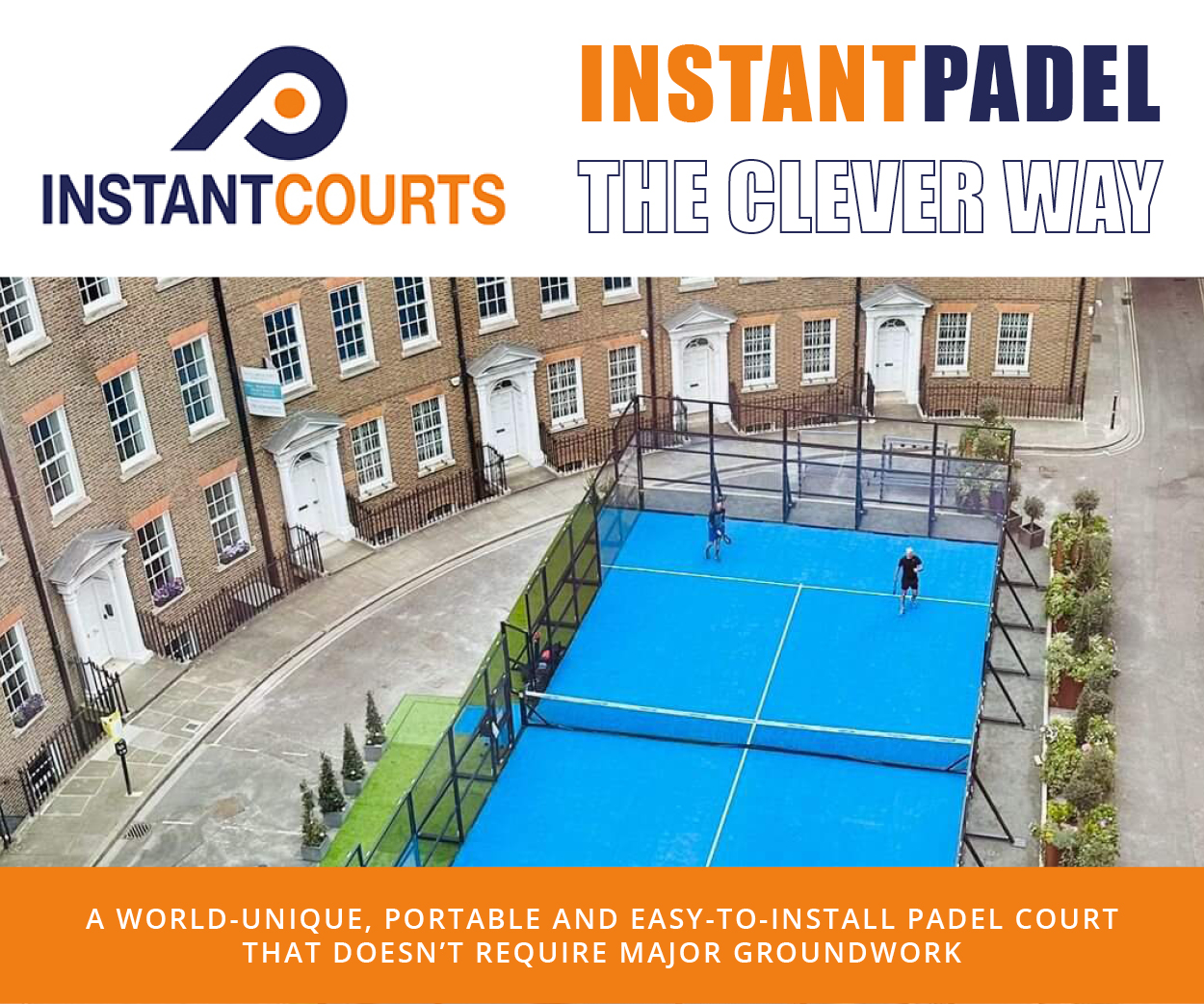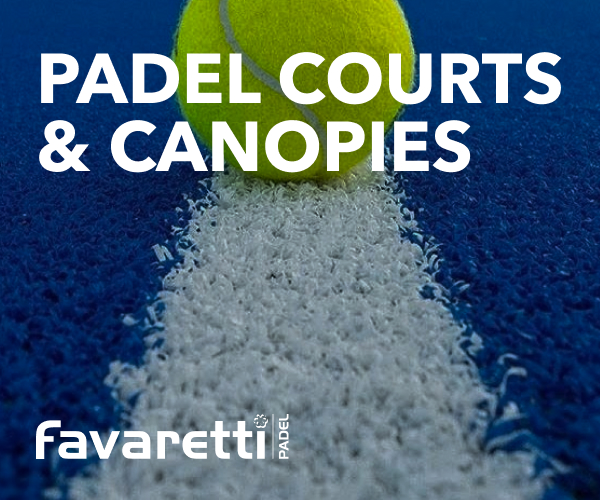Padel is becoming so popular that courts aren’t being built quick enough to keep up with demand – and that’s where Instantpadel are looking to change the game.
Instantpadel, co-founded by Stockholm-based Christoffer Granfelt and Magnus Berglund, offers courts that can be constructed by four people in four to eight hours without the lengthy and expensive groundwork required to install traditional padel courts.
Their courts are lighter, using 90kg, 10mm thick polycarbonate panels instead of traditional glass ones which weigh 250-300kg. The overall weight of all materials is 3.7 tonnes, compared to 8-10 tonnes for a traditional court.
The courts are modular so can be disassembled and re-located by the customer. But their major selling point is that Instantpadel courts can be set up on any existing flat surface, indoor or outdoor, with minimal or sometimes no ground preparation.

Usually, ground construction involves heavy machinery and can cost up to 30-40,000 euros on top of court costs of around 25,000 euros. Although Instantpadel’s courts are actually more expensive at around 36,500 euros, the minimal (or no) groundwork means their projects are cheaper overall.
“Myself and Magnus were frustrated that no kids could play because courts were always so crowded,” Granfelt tells The Padel Paper. “We started to challenge the industry and ask, why does it have to be so damn complicated to build a padel court?”
With expert help from Spaniard Fernando Cancuas Liopis, they found a density of polycarbonate that would provide a similar bounce to 10mm glass walls. The court perimeter is otherwise the same as standard courts, apart from the back walls being slightly lower (350cm instead of 400cm) due to transportation reasons.

Next, Granfelt and Berglund wanted to challenge the standard use of Mondo grass throughout the game. They came up with an alternative from an American firm, Versacourt, that is easy to install and does not require maintenance. Granfelt says the surface plays slightly differently to traditional padel grass but is just as responsive to spin and bounce and is kind to players’ knees.
A simple click system and strengthening support legs mean the court doesn’t need to be bolted to the ground.
By removing the need for lengthy and expensive groundwork, Granfelt says Instantpadel’s model opens up a myriad of different opportunities.
Instantpadel courts can be built on existing tennis courts, car parks, hotels, shopping malls, roofs or as pop-up courts at unique indoor or outdoor hot spots (such as the recent Padel Expo near Stockholm).
Some customers have even erected an Instantpadel court temporarily nearby whilst a traditional court is under construction, to allow potential new players to get an early taste of the game.
Granfelt says: “Padel is growing like crazy but we are not necessarily trying to compete with traditional court manufacturers. We are an add-on to the market. We’re having fun with our concept, allowing people to try out the sport and play recreationally, then perhaps go to their nearest padel centre once they want to become an elite player.”

Instantpadel courts can be disassembled and re-assembled by customers if, for example, they are a seasonal addition to their facilities or a temporary feature to arouse interest. Instantpadel offer a live Facetime service to guide them through assembly or disassembly, in addition to a detailed manual and instruction videos.
So far, Instantpadel have installed 65 courts in 10 different countries played on by an estimated 50,000 players. Those 10 countries include the UK, where Instantpadel have built two courts at Babington House, a luxury hotel in Somerset, and two more at Gleneagles Spa and Luxury Resort in Scotland (taking just six hours per court in each case).

“A year ago, I would have told you about the numbers and countries where we operate, but that doesn’t concern me so much now,” says Granfelt. “The thing that makes me proud is proof of concept. People are liking our product and how we fit into the market.”








































